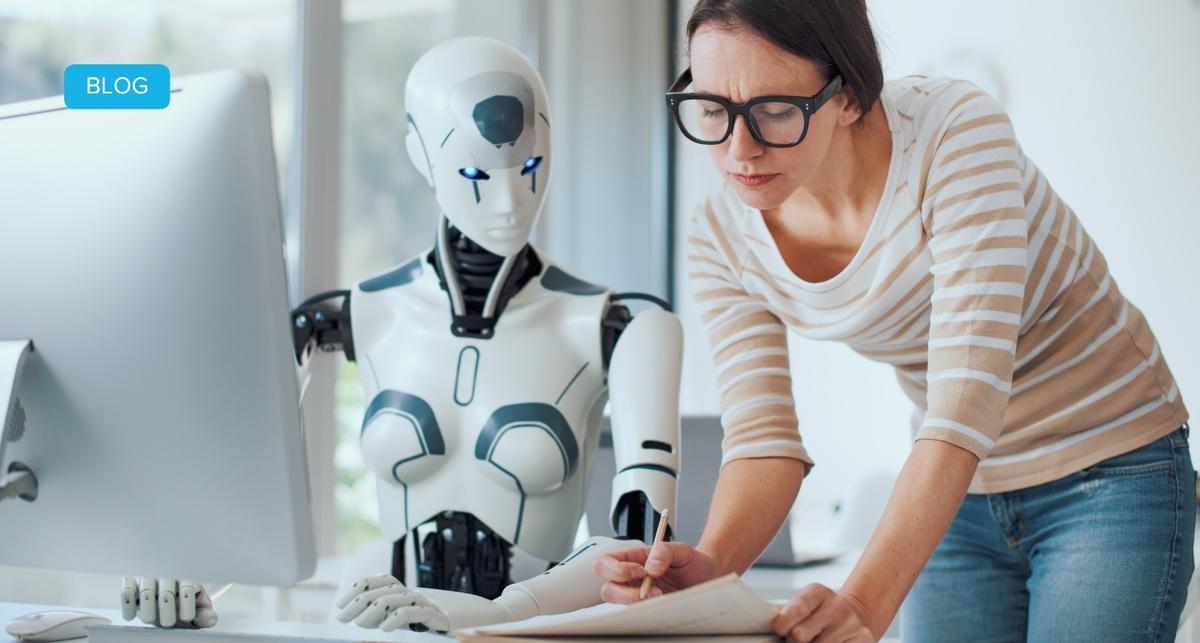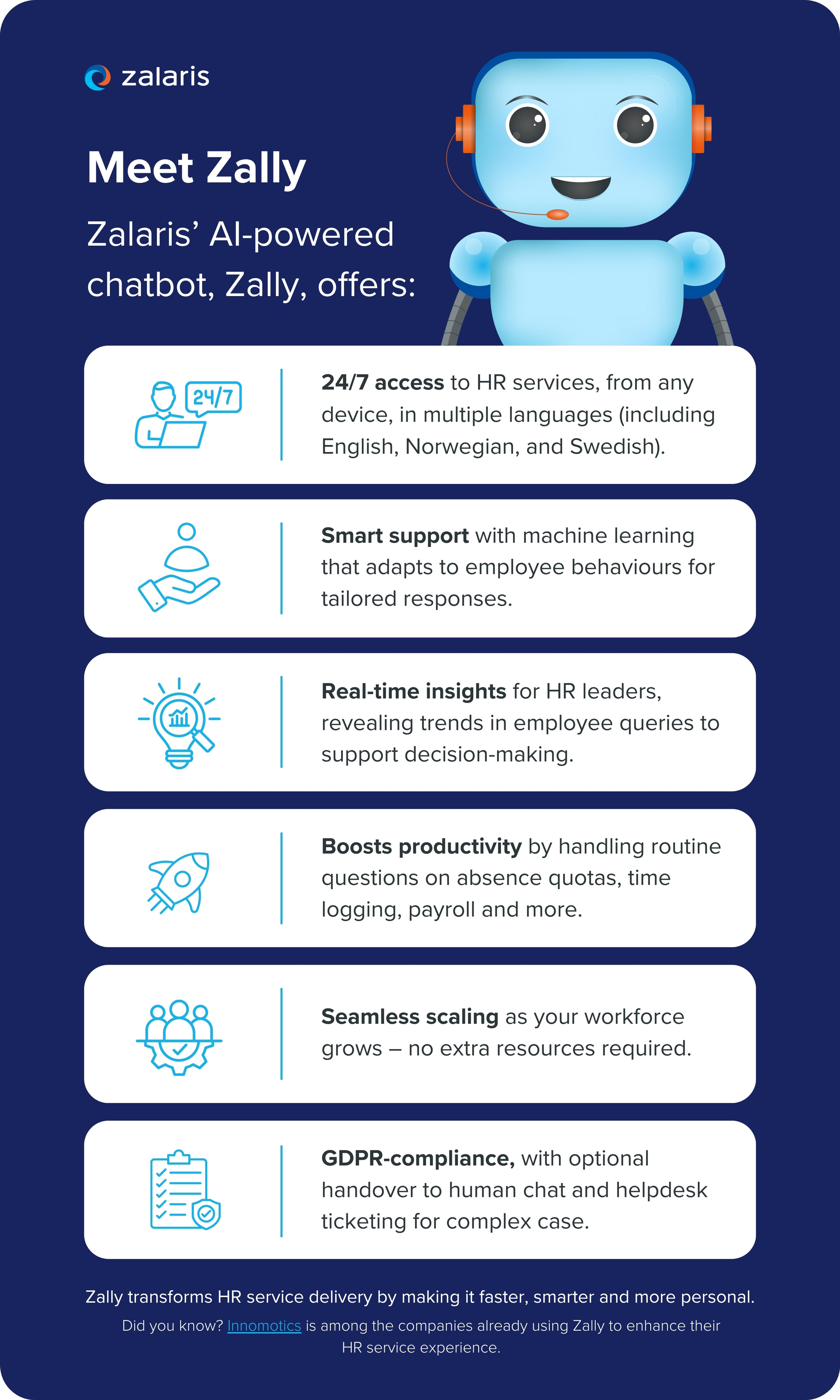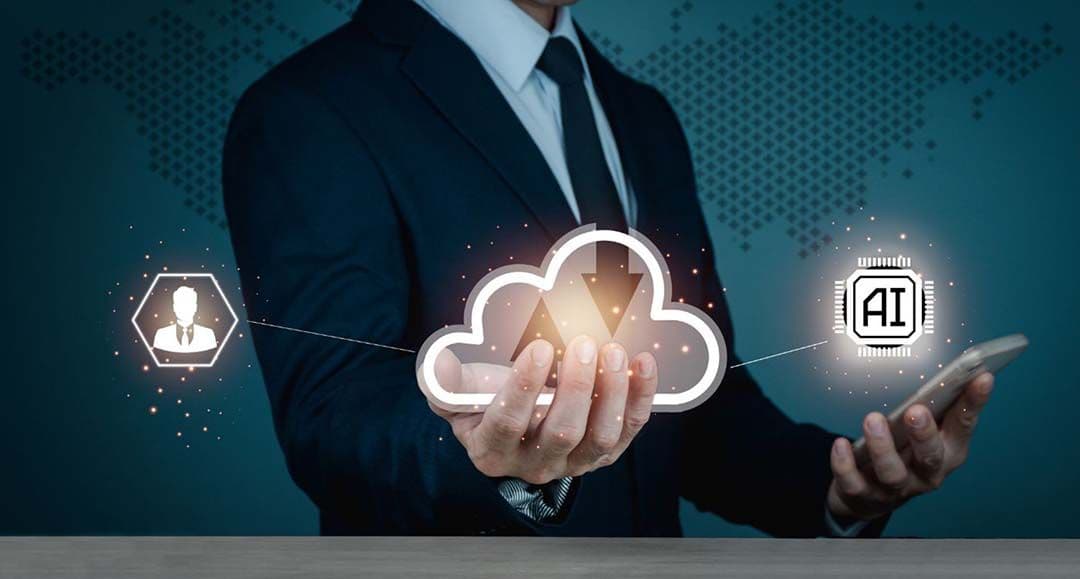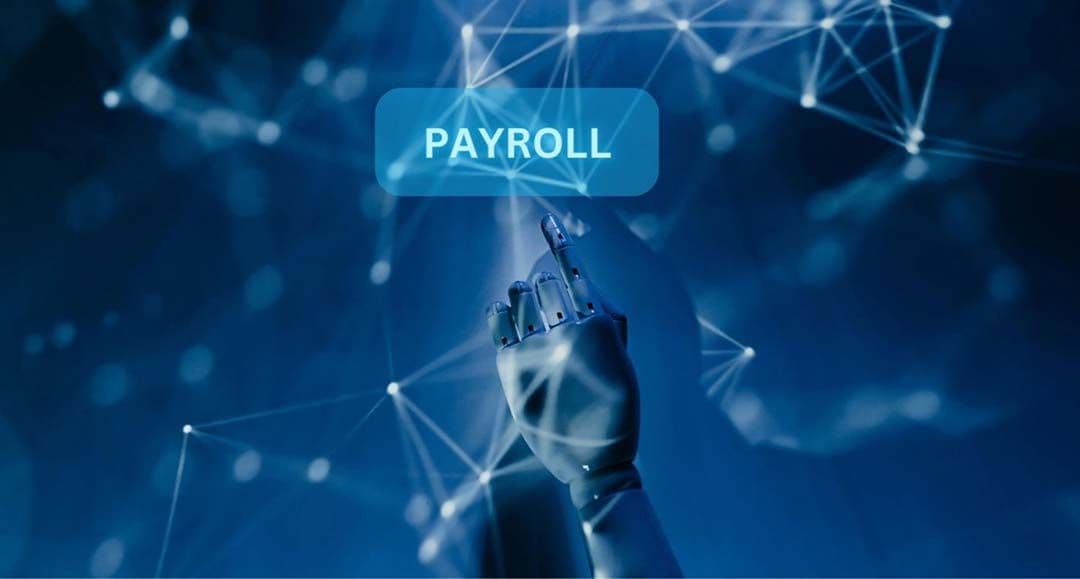AI in HR: Transforming people operations for scale and strategy
HR leaders are drowning in administrative tasks while struggling to attract top talent in an increasingly competitive market. Artificial Intelligence offers a lifeline, promising to automate routine processes while delivering strategic insights that transform how organisations manage their most valuable asset: their people.
Liam Clark

Artificial Intelligence (AI) is far more than a passing trend—it's a strategic necessity that's reshaping how organisations manage talent. Expected to contribute £12 trillion to the global economy by 2030, AI brings unprecedented speed, accuracy, and insight across HR functions.
By automating repetitive tasks, uncovering data-driven insights, and providing intelligent tools, AI frees HR professionals to focus on what truly matters: strategic, people-first initiatives that drive business growth and employee satisfaction.
Why and how AI in HR is reshaping the future of HR
AI in HR is enhancing operations, making them more responsive, accurate, and employee-centric. AI-powered tools can analyse vast datasets, detect patterns, and generate insights that human teams might miss. The result is a future of HR where real-time data and predictive analytics inform workforce management processes.
Machine learning algorithms are already transforming how organisations source and retain talent. Natural language processing (NLP) supports efficient CV parsing and powers chatbot-driven candidate interactions. AI also enables continuous learning, adaptive workforce planning, and more personalised employee experiences. Together, these capabilities support HR’s evolving role in building agile, resilient organisations.
AI also plays a vital role in fostering diversity and inclusion. By anonymising CVs and using structured interview assessments, AI can reduce unconscious bias in recruitment. Furthermore, AI-powered tools support tracking of diversity goals and help ensure fair representation across the workforce.
According to a 2025 report by McKinsey, nearly 90% of business leaders expect AI adoption to drive revenue growth within the next three years.
Core benefits of implementing AI in HR operations
An IBM research shows that 66% of CEOs believe AI will significantly change how work is done in the upcoming years, with HR identified as one of the most impacted functions.
With this transformation accelerating across industries, understanding AI's specific benefits for HR operations becomes crucial for competitive advantage:
| Benefit | Description |
|---|---|
| Efficiency and time savings | Routine and repetitive tasks, such as scheduling interviews, filtering CVs, or managing payroll can be fully or partially automated, freeing HR professionals to focus on strategic initiatives. |
| Improved accuracy and compliance | AI reduces human error, especially in data handling and regulatory compliance. For instance, AI tools can monitor changes in labour laws and automatically update policies or workflows. |
| Better-informed decision-making | AI can assess historical and real-time data to support informed decisions around hiring, promotions, and training investments. |
| Scalability | AI enables HR departments to manage growing workforces with the same or fewer resources, which is particularly useful for fast-scaling organisations. |
| Enhanced employee experience | Personalised development plans, AI-driven feedback loops, and round-the-clock virtual HR assistants improve employee satisfaction and engagement. |
| Cost optimisation | AI helps HR leaders identify inefficiencies in staffing, benefits, and training, ensuring that investments align with business outcomes and employee needs. |
Challenges and considerations when implementing AI in HR
Despite the numerous benefits, implementing AI in HR does present challenges. Realising the benefits requires navigating several implementation challenges that demand careful planning and strategic thinking
Data privacy and compliance
Safeguarding sensitive employee information is crucial. AI systems must comply with data protection regulations like the UK GDPR and ensure transparent data usage. While the EU has introduced the AI Act to regulate high-risk AI applications, the UK government has proposed a “pro-innovation” approach, which focuses on sector-led regulation. HR leaders must stay informed about evolving guidance from UK regulators and frameworks like the ICO's AI auditing toolkit.
Legal and ethical standards
The UK does not yet have a dedicated AI law like the EU AI Act, but several legal frameworks apply. These include the Equality Act 2010 (to prevent bias and discrimination), employment law obligations, and the Data Protection Act 2018. Adopting best practices from international organisations like the OECD, which recommends transparency, accountability, and human-centric AI, is also encouraged.
Algorithmic bias
AI models are only as reliable as the data used to train them. These systems may perpetuate historical biases without careful oversight, undermining diversity and inclusion goals. Regular auditing and transparency in model design are crucial.
Change management
Adopting AI requires shifts in mindset and workflow. During change management, HR teams must build trust in AI tools and understand that their role is to support, not replace, human judgement.
System integration
Many HR functions rely on legacy platforms that lack the flexibility to accommodate AI solutions. Ensuring seamless interoperability between new AI technologies and existing infrastructure is vital for success.
For more guidance, the UK Government's Generative AI Framework and the OECD's AI Policy Observatory offer strategic insights on responsible implementation.
Real-world use cases for AI for HR
AI-powered software in core HR processes
AI is playing a central role in modernising core HR functions. Integrated into cloud-based systems, it automates routine administrative tasks, generates real-time reports, and identifies trends that support workforce planning.
For example, LinkedIn's Global Talent Trends Report reveals that 76% of hiring managers say AI and automation will significantly impact recruiting over the next five years—particularly by accelerating candidate sourcing, improving quality of hire, and enabling more strategic, data-informed decision-making.
In payroll, AI algorithms validate inputs, detect anomalies, and help ensure accurate, timely payments. Self-service portals enhanced with AI-driven chatbots like Zalaris’ Zally, reduce the burden on HR teams by providing employees with instant responses to routine queries. These advancements, along with insights delivered through AI-driven dashboards, help HR leaders track key metrics such as engagement and absenteeism, enabling them to take proactive actions and make data-informed decisions.

AI-driven talent acquisition and onboarding
AI is already making a significant impact in talent acquisition and onboarding, with real-world use cases.
| Feature | How? |
|---|---|
| Intelligent screening tools Machine learning algorithms can evaluate qualifications, experience, and even potential cultural fit based on clearly defined parameters, reducing bias and improving the quality of hire. | Talent management tools, powered by AI, like SAP SuccessFactors, automate job matching, streamline shortlisting, and enhance the candidate experience. Features such as automated interview scheduling and AI-driven feedback loops reduce time-to-hire and increase precision. |
| Tailored training journeys These tools ensure that new hires are engaged, informed, and productive from day one. | Platforms like SAP Joule AI Assistant provide personalised learning paths and adaptive content delivery that adjusts in real time based on employee progress. |
| Guided onboarding experiences AI can support new hires throughout onboarding. | Interactive digital assistants can also answer common questions, explain processes, and even initiate early-stage mentoring. This fosters confidence and creates a smoother, more connected induction experience. |

Predictive analytics in workforce planning
The strategic impact of AI extends beyond individual processes to reshape entire workforce strategies. Workforce planning is evolving through predictive analytics powered by AI. These technologies analyse internal workforce data to anticipate future requirements, flag potential turnover risks, and identify skills gaps across departments.
By using generative AI tools such as SAP Analytics Cloud, organisations can model various workforce scenarios and simulate the impact of changes in business strategy. This allows HR teams to make proactive, data-informed decisions and better align talent planning with organisational goals.
External market conditions can also be factored into workforce models. With AI-driven workforce planning solutions, organisations can anticipate future hiring needs, optimise team structures, and define training priorities, helping to align HR efforts with long-term business goals.
AI-powered employee engagement tools
AI elevates employee engagement through tools that measure sentiment, personalise development, and automate feedback. With the integration of platforms like SAP SuccessFactors Employee Central and the Joule Copilot from SAP, organisations can use real-time data to identify engagement trends and promptly resolve emerging concerns.
Sentiment analysis tools embedded in internal communication platforms collect employee feedback, boosting morale and engagement. This enables HR to take preventative action and build a supportive work environment.
Personalised recognition, curated wellness content, and development recommendations based on AI insights contribute to employees feeling valued, supporting satisfaction and long-term retention across the workforce.
Getting started: Steps to implement AI in HR
Ready to harness these capabilities? Success requires a structured approach to implementation. Follow these key steps to ensure a smooth and impactful deployment of AI in HR:
1. Define a clear strategy
Implementing AI HR solutions should begin with a clear strategy. This involves identifying pain points where AI can add the most value, such as high-volume recruitment or performance tracking.
2. Engage stakeholders early
Engaging internal stakeholders early in the process helps build support and sets expectations, and encourages cross-functional collaboration.
3. Select the right technology partner
Choose a technology partner whose solutions that integrate easily with existing systems and scale with organisational growth are preferable.
4. Start with pilot programmes
Test AI capabilities in a controlled environment through pilot programmes before full-scale implementation. This allows you to assess performance, gather feedback, and refine the approach before wider implementation.
5. Ensure training and communication
Training and communication are essential to ensure adoption. HR professionals need to understand how AI supports their roles, while employees should be informed about how AI is being used and protected.
6. Monitor and adjust continuously
Establish continuous monitoring to track AI's impact on key HR metrics. Use insights and feedback to optimise performance and ensure long-term value.
The way forward: embracing AI in HR for long-term growth
AI in HR is no longer a future concept — it is a current reality reshaping HR operations. By automating administrative tasks, enhancing decision-making, and personalising the employee experience, AI enables HR teams to focus on what matters most: becoming strategic and people-centric drivers of organisational growth.
Zalaris, as a leading provider of end-to-end AI-powered HR solutions, drives meaningful transformation across the employee lifecycle. From intelligent talent acquisition and personalised onboarding to predictive workforce planning and real-time engagement tools, Zalaris empowers organisations to streamline operations, enhance employee experiences, and align HR strategies with long-term business goals.
We invite your HR leaders to explore how Zalaris can support the implementation of AI for HR. Discover the benefits of smarter, data-driven HR operations and take the next step with a personalised consultation. Get in touch with our expert team and unlock the future of HR today.
Frequently asked questions about AI in HR
1. What is AI in HR and how does it work?
AI in HR uses machine learning algorithms and natural language processing to automate routine tasks, analyse workforce data, and provide intelligent insights. It works by processing large datasets to identify patterns, predict outcomes, and make recommendations that support strategic decision-making across recruitment, performance management, and employee engagement.
2. How does AI improve recruitment processes?
AI streamlines recruitment by automatically screening CVs, identifying qualified candidates, and matching skills to job requirements. It reduces bias through standardised evaluation criteria, speeds up candidate sourcing and improves quality of hire by analysing successful employee profiles to predict candidate success.
3. What are the main risks of implementing AI in HR?
Key risks include perpetuating historical biases in hiring decisions, data privacy concerns, over-reliance on automated systems, and employee resistance to change. These risks can be mitigated through regular algorithm auditing, transparent data practices, human oversight, and comprehensive change management programmes.
4. How do I start implementing AI in my HRdepartment?
Begin by identifying repetitive tasks suitable for automation, such as CV screening or interview scheduling. Assess your current data quality and systems integration capabilities. Start with pilot programmes in specific areas, ensure stakeholder buy-in through training, and choose technology partners with proven HR expertise and compliance standards.
5. Can small businesses benefit from AI in HR?
Yes, cloud-based AI solutions make advanced HR technology accessible to smaller organisations. Tools like AI-powered chatbots, automated scheduling systems, and basic analytics can deliver significant efficiency gains without requiring large IT investments or dedicated technical teams.

Liam Clark
HCM Consultant
Liam is an HCM Consultant of Zalaris UK&I, with a technical and functional background of SAP Products. His current focus is on SuccessFactors Employee Central and Recruitment Modules. Before joining Zalaris at the start of 2021, he worked as a SAP HCM and Payroll Specialist within the UK Public Sector.
Table of Contents
- Why and how AI in HR is reshaping the future of HR
- Core benefits of implementing AI in HR operations
- Challenges and considerations when implementing AI in HR
- Real-world use cases for AI for HR
- AI-driven talent acquisition and onboarding
- Predictive analytics in workforce planning
- AI-powered employee engagement tools
- Getting started: Steps to implement AI in HR
- The way forward: embracing AI in HR for long-term growth
- Frequently asked questions about AI in HR

